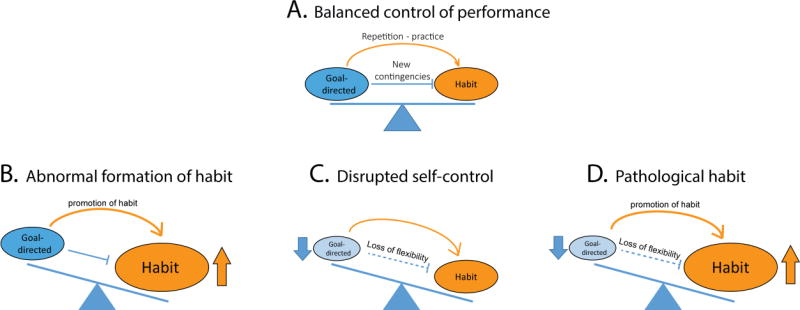Figure 2.
Disentangling abnormal habit from deficits in goal -directed control in substance use disorders. A. Balanced control of performance in non-addicted individuals; Repetition and practice promote the formation of habit but in situations that warrant deliberation, such as changes in environmental contingency, individuals can re-exert goal-directed control over habit to flexibly adjust their responding. B. According to the first model, the unbalance between goal-directed and habitual control in SUD would result from accelerated formation of abnormal and strong drug habits without deficit in goal-directed behavior C. According to the “disrupted self-control” model, habit would not be abnormally strong but would be expressed more frequently as a result of impaired goal-directed and inhibitory control. D. The “pathological habit” model posits that impairments in goal-directed control combine with abnormal habit formation to promote compulsive drug use in SUD.

